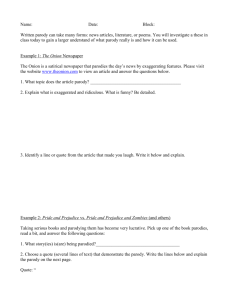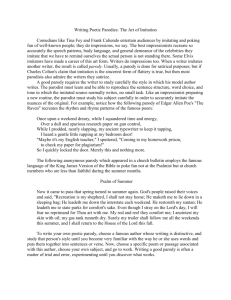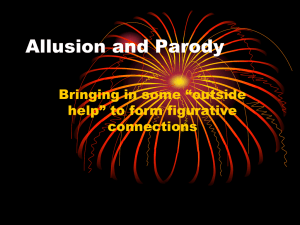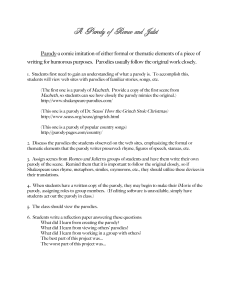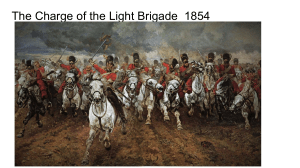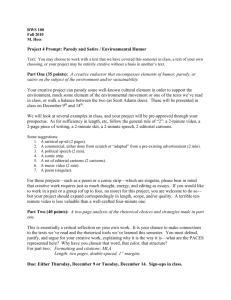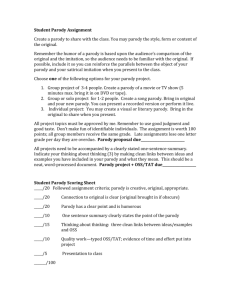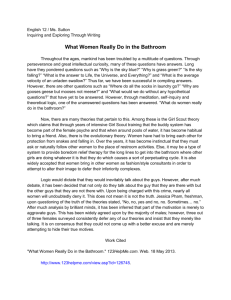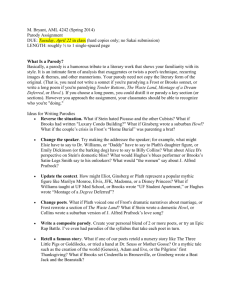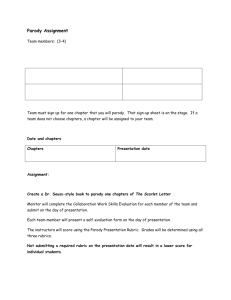Parody: Definition, Function & Examples in Literature
advertisement
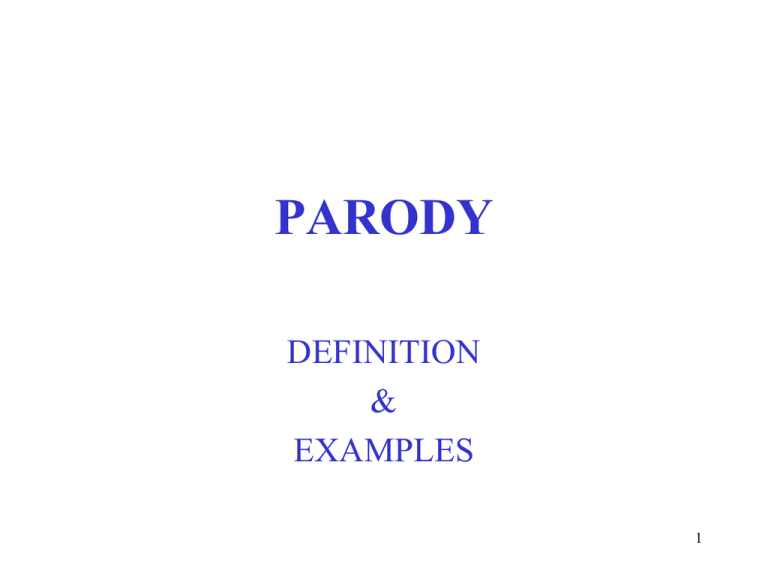
PARODY DEFINITION & EXAMPLES 1 Definition: Parody • Dictionary meaning: “a humorous or satirical imitation of a serious piece of literature or writing.” • Wikipedia definition: “a work created to mock, comment on, or poke fun at an original work, its subject, or author, or some other target, by means of humorous, satiric or ironic imitation.” 2 The obvious point to know about parody In order to write parody, there has to be an original work that the poet refers to (either to criticize/satirize or make fun of). Therefore, as readers, we need to be familiar with that original work in order to fully understand what is being parodied. 3 Function of Parody • establishes a dialogue with the original work. In order to write a parody, you need to really understand the original work to reproduce its style and manner. • a commentary on the original work for different purposes (make fun of, criticize/satirize etc.). • The purpose of parody (though rarely) can be to be funny or witty & make us laugh. • provides a fresh perspective on the original work and what it represents. That fresh look might be about the poem or about something larger than the poem. For ex., pastoral vision can be criticized. • sees the past through the perspective of the present/that particular moment the poet writes. 4 Function of Parody • When one writer parodies another writer’s work, it does not necessarily mean that the original poem is without merit. Acc. to critic Dwight Macdonald “Most parodies are written out of admiration rather than contempt.” Another critic, Geoffrey Grigson, argues “Nobody is going to parody you if you haven’t style.” 5 Some parodies are written to adapt the original poem to contemporary setting, so they might be providing commentary on both the past and the present To Lucasta On Going to the Wars Tell me not, Sweet, I am unkind, That from the nunnery Of thy chaste breasts, and quiet mind, To war and arms I fly. To My Fans, on Becoming a Free Agent Tell me not, fans, I am unkind For saying my good-bye And leaving your kind cheers behind While I to new fans fly. True, a new mistress now I chase, The first foe in the field; And with a stronger faith embrace A sword, a horse, a shield. True, I have lost your sweet embrace While on your rival's field; But I have viewed the market place And seen what it can yield. Yet this inconstancy is such, As you too shall adore; I could not love thee, Dear, so much, Loved I not honour more. Richard Lovelace Though my disloyalty is such That all you fans abhor, It's not that I don't love you much: I just love money more. Gene Fehler 6
